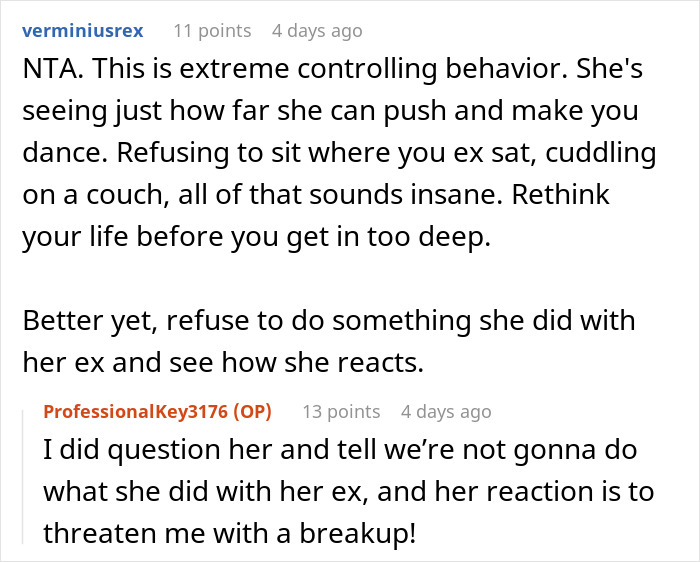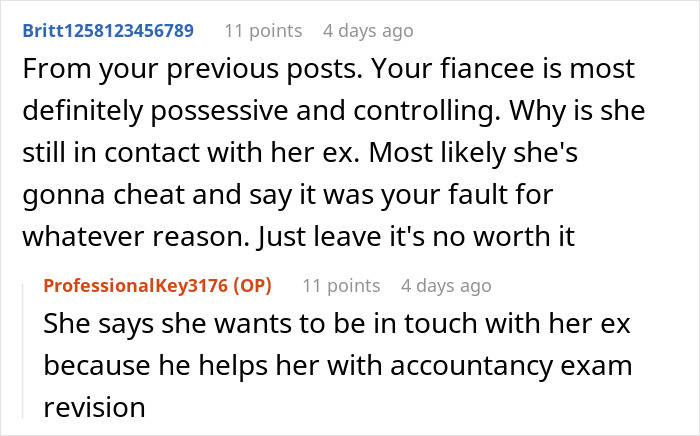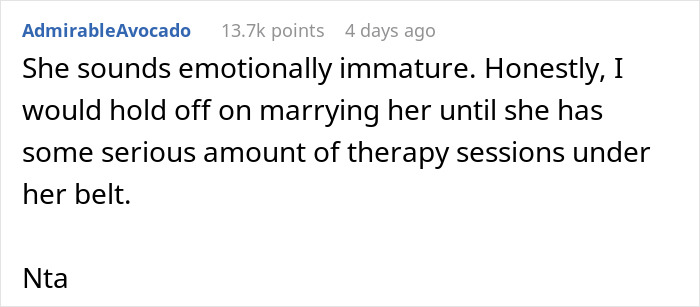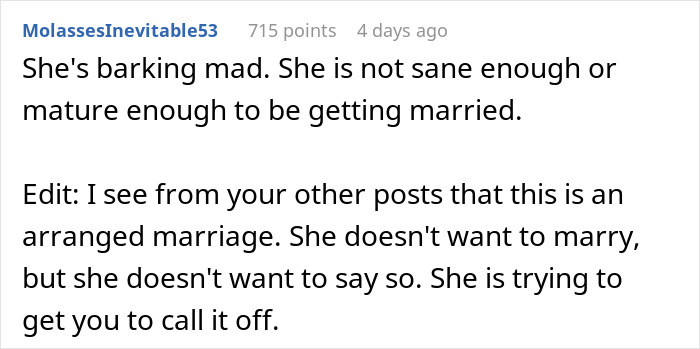A tinge of jealousy is expected in relationships, especially romantic ones. Turning a little green can even be healthy at times, contributing to stronger feelings of love and stability in couples. However, when it becomes irrational and excessive, it can completely throw a relationship off the tracks.
For this couple, the source of jealousy was ex-partners. The fiancée became so consumed with the past of her soon-to-be spouse relationships that she refused to do anything related to his exes with him. Such behavior started raising red flags, so her fiancé turned online for advice on how to deal with the situation.
Scroll down to find the full story and a conversation with therapists Anna Khandrueva and Jenny Mahlum, who kindly agreed to tell us more about jealousy in relationships.
Jealousy in relationships is completely normal, to a point, of course

Image credits: Prostock-studio (not the actual photo)
This woman completely exceeded the point when she became blindly obsessed with partner’s past relationships
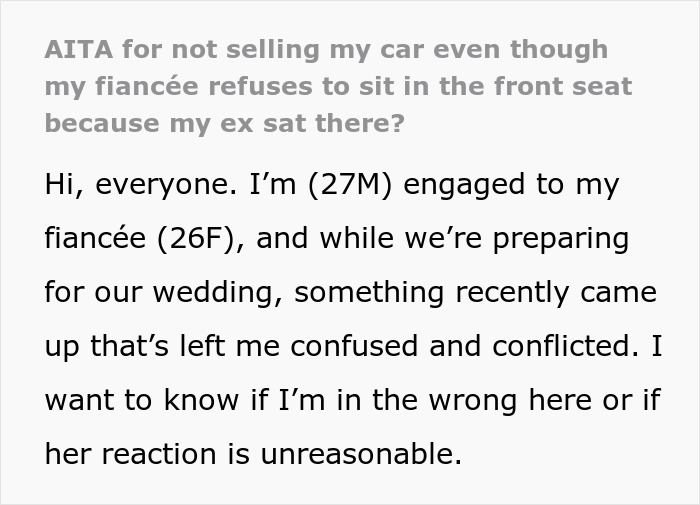



Image credits: avanti_photo (not the actual photo)
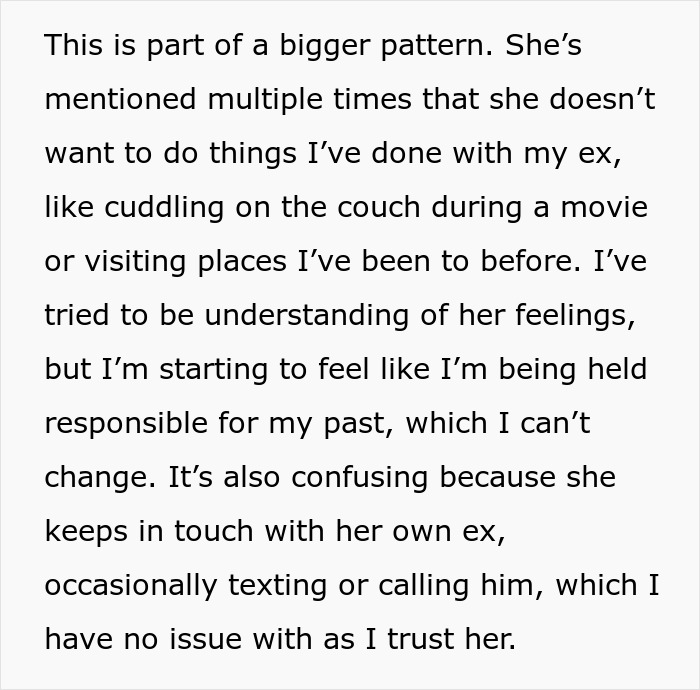
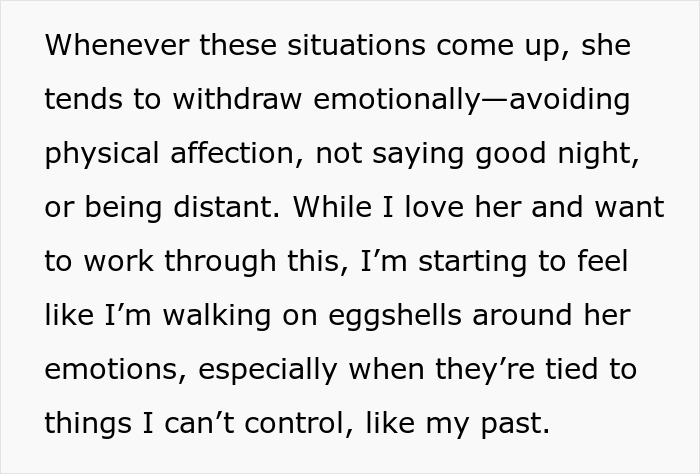
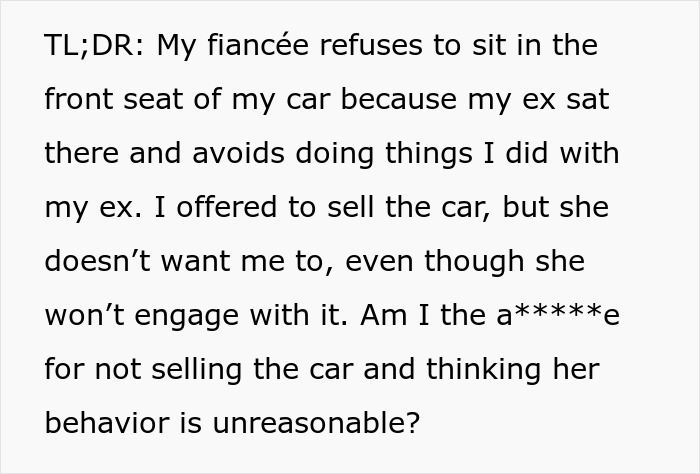
Image credits: ProfessionalKey3176
“It is normal to feel a twinge of jealousy over your partner’s past relationships”
“It is normal to feel a twinge of jealousy over your partner’s past relationships,” says therapist Anna Khandrueva. “It is when you are unable to move on and start to become angry, possessive, distrusting, or controlling that jealousy becomes unhealthy,” she explains.
“Jealousy becomes unproductive—and even harmful to the health of the relationship—when it starts to erode trust, dominate thoughts, lead to accusations, or result in attempts to control a partner’s behavior. If jealousy begins pulling you away from genuine connection or leads you to monitor your partner’s actions through its lens, it’s a sign to pause and explore where those feelings are coming from,” adds therapist Jenny Mahlum.
Such unhealthy obsession with a partner’s former relationships is known as retroactive jealousy, or the Rebecca syndrome, and often stems from insecurities, various anxieties, and past betrayals.
“If you have low self-esteem, you may look for proof of your own perceived inadequacy by comparing yourself to your partner’s exes. If your childhood wounds cause you to be terrified of being lonely and unwanted, you will fear that your partner will abandon you and get back together with an ex. And if you have a betrayal in your past, it can make it that much harder to trust again. About half of people who were cheated on experience PTSD-like symptoms that cause intrusive thoughts about infidelity,” explains Khandrueva.
Retroactive jealousy can also be caused by a partner’s behaviors, like spending too much time with their ex and prioritizing them over their current relationship, says Khandrueva.
Mahlum notes that social media can amplify feelings of retroactive jealousy. “The more you engage with these thoughts—scrolling through old photos, asking for unnecessary details, or creating stories about their past in your head—the more they grow, keeping you stuck in an imagined version of the past instead of being fully present in the relationship.”

Image credits: Daniel Martinez (not the actual photo)
When the past is creeping into relationships, focus on the present
The first step towards dealing with the feeling that turns us into little green-eyed monsters is to recognize it and give ourselves time to feel it, says Khandrueva. Meanwhile, Mahlum suggests doing a bit of a deep dive into why a partner is feeling jealous, both individually and together as a couple.
“Instead of dismissing or avoiding the feelings, ask questions like: What is this jealousy telling us? What reassurance do I need? What reassurance do you need? It’s also important to recognize that the partner experiencing stronger feelings of jealousy often has more personal work to do,” Mahlum says.
“While it’s okay to seek reassurance, relying solely on your partner to provide reassurance and manage insecurities will place unnecessary strain on the relationship. Getting curious independently—exploring where the jealousy stems from, building self-awareness, and addressing underlying fears—allows for healthier, more productive conversations and shared growth as an individual and as a couple.”
However, Khandrueva notes that a person should respect their partner’s privacy and shouldn’t feel entitled to know everything about their past. Mahlum also says that “it’s equally important to set boundaries on how much detail about the past is helpful or wanted.”
Lastly, Khandrueva advises to focus on the present. “Do your best to make this relationship the kind of relationship that makes your partner proud and happy to be with you. Celebrate your achievements as a couple. Spend quality time together. Learn each other’s love languages and make sure to use that knowledge to make your partner feel loved and accepted just the way they are.”
In general, Mahlum recommends approaching jealousy and conversations about it with curiosity, care, and a lack of judgment. “Avoid making assumptions when asking questions. Instead of saying, “Tell me about your last relationship,” try something like, “Would you be open to sharing now or sometime in the future about your experiences with dating and whether or not you’ve had a relationship?”” This way they can strengthen trust and connection.

Image credits: Blake Cheek (not the actual photo)
Readers counted all the relationship’s red flags, urging the man to remove himself from it




